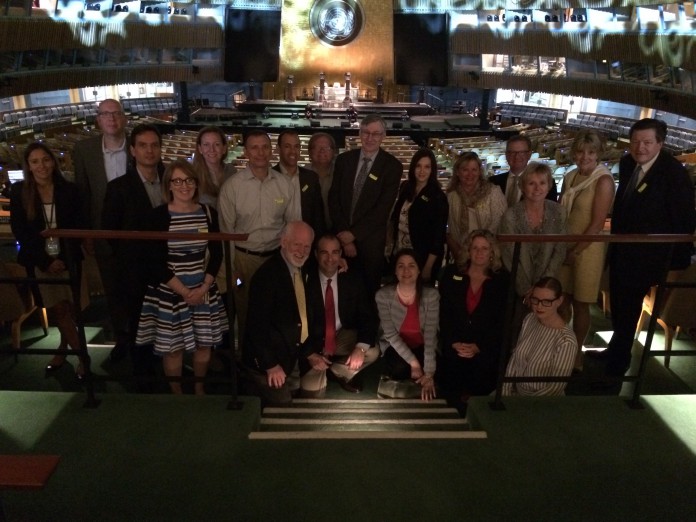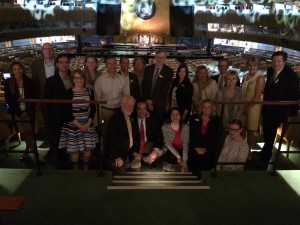Middle: The Best Practice Institute (BPI) Senior Executive Board with Louis Carter, CEO of Best Practice Institute at at the United Nations (picture taken in the UN General Assembly)
Most of you probably do not think about the economist´s law of diminishing utility on a daily basis.
Nor do you consider Alfred Marshall a household name.
But there is an interesting relationship between the two. Let me explain.
The Law of Diminishing Utility simply states that the first unit you consume of a good gives you more utility, or “happiness”, than subsequent units. When you’re hungry, the first hot dog is just fabulous. The 10th not so much anymore.
The economist Alfred Marshall thought a lot about these things. To him, happiness was the ultimate purpose of life. He concluded that more wealth is useful only when it leads to a higher income of happiness. That was more than 100 years ago.
Today, we still ask the question: what is our purpose? Modern civilization has reached levels of wealth that were unimaginable only 40 years ago.
But many are wondering: is something out of whack?
Many are wondering if the world has come to a crossroads. While large parts of humanity remain mired in abject poverty and war, the mantra in other places still is: “more stuff”.
In many societies, the most pressing form of malnutrition is over-eating. The Aral Sea located between Kazakhstan and Uzbekistan, once the fourth largest lake on the planet has lost over 90 per cent of its size since the 1960s due to irrigation projects.
So, many are wondering: maybe it is time we reverse course. Increasingly, people are re-assessing what the true purpose of life is. And they conclude it is not “more stuff”, but a higher income of happiness.
I believe there is a shift in emphasis happening. And it will have far-reaching implications for governments, companies and the way societies organize themselves.
That is is why the UN Global Compact is right on the dot. And, why the BPI Senior Executive Board is met at the United Nations to discuss these issues and connect them to their talent strategies.
Shaping the future is not about doing away with free markets, as some suggest. But we need to think and act on principles of respect for human rights, fair labor relations, environmental sustainability, and legality.
In the end, what we all want is not “more stuff”. But happiness in our lives.











